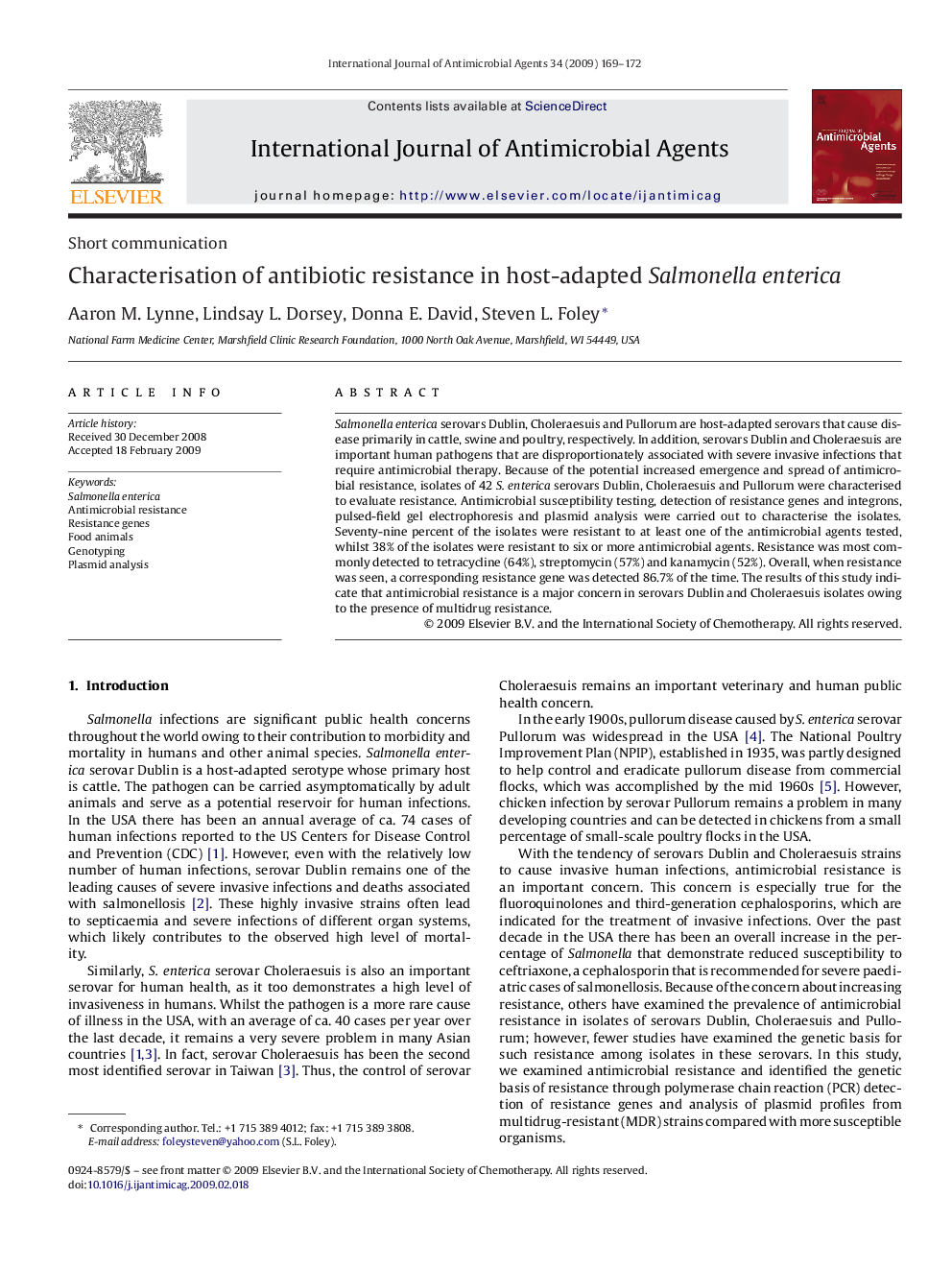| Article ID | Journal | Published Year | Pages | File Type |
|---|---|---|---|---|
| 3360469 | International Journal of Antimicrobial Agents | 2009 | 4 Pages |
Salmonella enterica serovars Dublin, Choleraesuis and Pullorum are host-adapted serovars that cause disease primarily in cattle, swine and poultry, respectively. In addition, serovars Dublin and Choleraesuis are important human pathogens that are disproportionately associated with severe invasive infections that require antimicrobial therapy. Because of the potential increased emergence and spread of antimicrobial resistance, isolates of 42 S. enterica serovars Dublin, Choleraesuis and Pullorum were characterised to evaluate resistance. Antimicrobial susceptibility testing, detection of resistance genes and integrons, pulsed-field gel electrophoresis and plasmid analysis were carried out to characterise the isolates. Seventy-nine percent of the isolates were resistant to at least one of the antimicrobial agents tested, whilst 38% of the isolates were resistant to six or more antimicrobial agents. Resistance was most commonly detected to tetracycline (64%), streptomycin (57%) and kanamycin (52%). Overall, when resistance was seen, a corresponding resistance gene was detected 86.7% of the time. The results of this study indicate that antimicrobial resistance is a major concern in serovars Dublin and Choleraesuis isolates owing to the presence of multidrug resistance.
